
2022/12/06
- Category
UNESCO Chair Programme on Cultural Heritage and Risk Management INTERNATIONAL TRAINING COURSE (ITC) on DISASTER RISK MANAGEMENT of CULTURAL HERITAGE 2022, 16th year, Ritsumeikan University
- Category
International Training Course
UNESCO Chair Programme on Cultural Heritage and Risk Management INTERNATIONAL TRAINING COURSE (ITC) on DISASTER RISK MANAGEMENT of CULTURAL HERITAGE 2022 from 18th August to 13th October 2022, at Kyoto, Japan
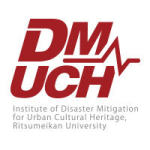
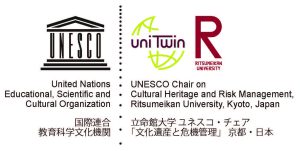

Organized by Institute of Disaster Mitigation for Urban Cultural Heritage, Ritsumeikan University
In collaboration with ICCROM
Contributed by UNESCO, ICOM & ICOMOS/ICORP
ITC 2022, the 16th year
The UNESCO Chair Programme on Cultural Heritage and Risk Management – 16th INTERNATIONAL TRAINING COURSE (ITC) on DISASTER RISK MANAGEMENT of CULTURAL HERITAGE 2022 was successfully held for eight weeks from 18th August to 13th October 2022. This year’s course had fifteen participants and six associated observers. These participants and observers were from Australia, Canada, Chile, Croatia, Cuba, Egypt, Ethiopia, Guatemala, India, Iran, Italy, Lebanon, Nepal, New Zealand, Portugal, Puerto Rico, Republic of Mauritius, Romania, Taiwan ROC, Turkey, and United States of America. They were selected through a competitive selection process which had 63 applicants from various regions of the world. This year’s participants had diverse backgrounds, including cultural heritage managers, disaster risk management experts, decision-makers, and government officials involved in cultural heritage conservation and disaster management.
There were lectures from faculty members of Ritsumeikan University and members of ICCROM. Also, experts from institutions such as the Agency for Cultural Affair, Kyoto City Fire Department, Kyoto National Museum , Cultural Heritage disaster Risk Management Center, ICHCAP, UNDRR, Loughborough University, Edge Hill University, Potsdam University, University of Exeter, Sapienza University of Rome, Miyagi University, Kathmandu Valley Preservation Trust, Cultural Heritage without Borders, Natural Disasters Research Institute, INAH, the National Library of Latvia, INTACH Kashmir Chapter and Croatian Conservation Institute gave lectures, conducted workshops, and provided critical knowledge and guidance. During the course, the trainees gained a deepened understanding of various aspects of disaster risk management of cultural heritage. This year featured examples of best practices and innovative initiatives in Japan as well as particular issues and lessons learned from the field of cultural heritage conservation and disaster risk management in other nations.
This year the theme of ITC was: Traditional knowledge for disaster risk management of cultural heritage. The examples included in the course span the government level, community-based disaster mitigation efforts by neighborhood associations, and disaster response to recovery and reconstruction planning. In addition, to focus on traditional knowledge for Disaster risk management, the case studies from various countries were introduced such as Kozagawa Town, Fukuchiyama of Japan, Patan of Nepal and Assam of India. The course included a separate panel discussion on the topic with a number of international experts to understand various perspectives and to develop a comprehensive understanding of traditional knowledge for disaster risk management.
It was challenging for us to conduct online course this year too. This year, we have created two original videos of Japanese townhouses from Kozagawa Town and Fukuchiyama which show traditional dwelling culture to prevent/mitigate water flood disaster.
The live sessions for ITC were held twice a week for two hours each. We set a theme for each week, with lectures and discussions on the first day, and related workshops on the second day of every week. Pre-recorded lectures were provided before the live sessions. Additionally, we conducted mentoring/feedback sessions where participants could have time to discuss what they had learned that week with core lecturers and develop their individual case study projects. Through these sessions, participants were able to advance their pilot projects. The final outcomes of the participant’s work will be published in proceedings at the end of this fiscal year.
We, the UNESCO Chair Programme on Cultural Heritage and Risk Management, will continue these outreach activities and the dissemination of our research outcomes to the international community.
Course Pictures
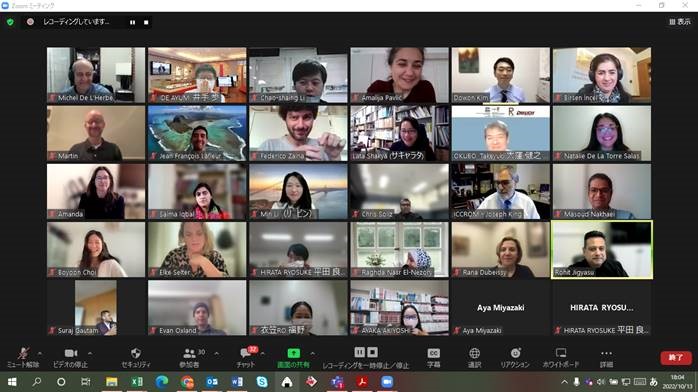
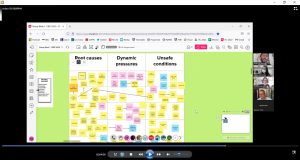
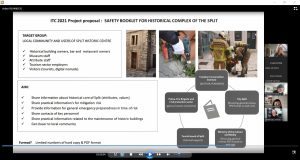
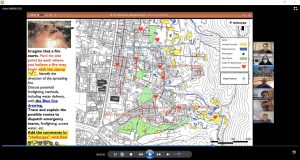
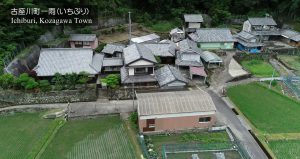
- SHARE
